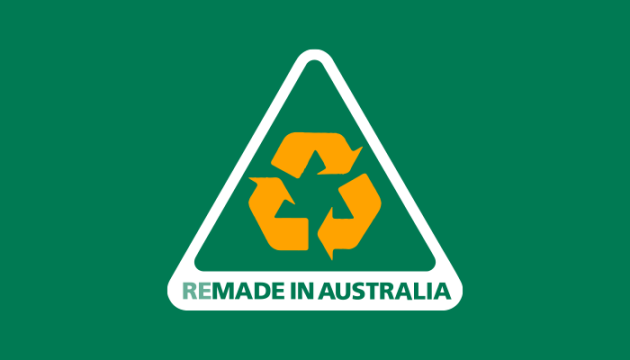The Australian government has launched ReMade in Australia, a national campaign that urges Australians to recycle more, and shows how they can help create jobs and protect the environment.
Prime Minister Scott Morrison said the new campaign was a critical step in giving Australians the confidence to recycle more and to buy products manufactured with recycled content.
“We are taking responsibility for our waste, we put a stop to it being shipped overseas as someone else’s problem, and we made recycling one of six national manufacturing priorities,” he said.
“Australians are doing the right thing and they want to be assured that the efforts they make in recycling at their homes and workplaces are delivering real outcomes – from the roads they drive on, to the sunglasses they choose to wear.
“We need to recycle even more, and this campaign will help consumers and business understand the benefits that recycling can deliver for our environment and for jobs.
“ReMade in Australia builds on the pride we all have in Australian-made and the pride we take in doing the right thing for our environment.”

Sussan Ley, minister for the environment, said that recycling can reduce pressure on the environment, and the government wanted to create Australian manufacturing jobs.
“The ReMade in Australia campaign asks Australians to look for those products using recycled materials, it raises awareness about the ways recycled materials contribute to our everyday lives,” Ley said.
“ReMade in Australia will help Australians understand the ways they are contributing through both recycling and the choices they make at the checkout.”
Assistant minister for waste reduction and environmental management Trevor Evans said that now was the right time for Australian businesses and consumers to think ReMade Australia.
“This campaign taps into the pride Australians have in doing the right thing for the environment,” said Evans. “At the time of year when people are buying gifts and unwrapping tonnes of packaging, it is all the more important to have recycling front of mind.”
The Australian Food and Grocery Council (AFGC) welcomes the federal government’s campaign as it focuses attention on the enormous potential for home-frown recycling and reuse to drive economic growth and environmental protection.
“The AFGC is driving the development of Australia’s biggest recycling scheme for soft plastic packaging, the NPRS, which will increase the scale of soft plastics recycling in Australia, and help create a true circular economy that drives demand for products that use recycled content,” said Tanya Barden, AFGC CEO.
“We welcome the renewed focus on manufacturing capabilities that will come with ReMade in Australia as it will give consumers confidence that their own recycling efforts are part of a national shift to build a circular economy.
“We know that the technical capability, the enthusiasm to invest, and the desire to create new markets for recycled content exist in Australia, and we welcome this new campaign for the attention it will bring to this vital industry.”
The Australian Local Government Association also welcomes the campaign, with president Linda Scott saying that to meet this ambitious target, the amount of waste diverted from landfills will have to rise from the current 43.5 million tonnes to at least 58 million tonnes, an increase of about 35 per cent.
“This will require the Commonwealth to exert a greater leadership role focused on appropriate policy settings, incentives for business and innovators, and continued support for local government,” said Scott.
“Our 537 councils do all the heavy lifting when it comes to collecting, sorting and recycling municipal waste. We partner with industry to improve materials recovery rates, and we help educate households to become more aware of recycling and about minimising food waste.
“These new commitments by the Morrison government will support this work that is directed at accelerating Australia’s transition to a circular economy.”






